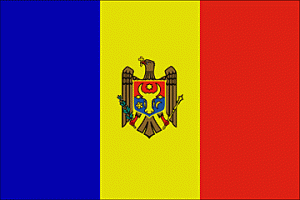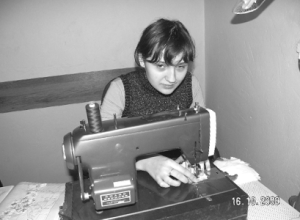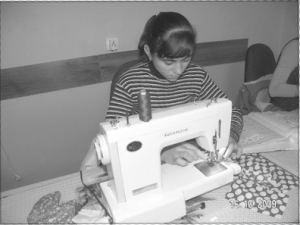Category Archives: Moldova
A Friend In Need Is A Friend Indeed
by Constantin Bandiu
Fall 2010 InGear
Pelinia is one of the largest villages in northern Moldova, with a population of over eight thousand. The main occupation for villagers is farming, which keeps most residents busy all year round. Consult-Nord was founded in 2005, with the agreement of Pelinia’s citizens, to be a voluntary, independent, self-administrated, non-political organization to undertake projects for the benefit of the population of the Pelinia region as a whole.
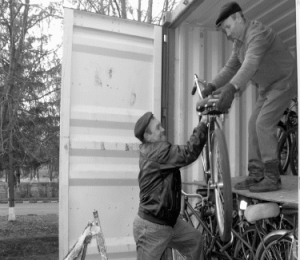 Our association’s aims are to organize area youth and improve their socio-economic condition, to develop close relations with local, national, and international NGO partners, and to establish a closer partnership with the local public administration for more efficient community problem solving. We’ve also founded the Alliance of Community Centers of Access to Information and Training (ACCAIT), currently comprising over 100 centers across Moldova. We are able to maintain our activities through nominal fees for our services and by fundraising from external resources.
Our association’s aims are to organize area youth and improve their socio-economic condition, to develop close relations with local, national, and international NGO partners, and to establish a closer partnership with the local public administration for more efficient community problem solving. We’ve also founded the Alliance of Community Centers of Access to Information and Training (ACCAIT), currently comprising over 100 centers across Moldova. We are able to maintain our activities through nominal fees for our services and by fundraising from external resources.
By 2006 we were able to implement the “Local Economical Development” project. Its major aim is to eradicate local poverty and unemployment by growing Pelinia’s economic sector and developing its infrastructure by organizing the resources of the community and its citizens. In 2008, due to a partnership with Pedals for Progress, the project was able to bring a container of bicycles from the United States. The aim of this initiative was to provide the bicycles at low cost to help Pelinians solve problems such as traveling around and outside the village efficiently, carrying heavy loads to and from their fields, etc.
One of our most exciting projects has been our modern Sewing Workshop. Besides the bicycles, Pedals for Progress sent us 15 sewing machines. Last summer, with the proceeds of selling some of the bicycles and with the help of the Peace Corps in Moldova, we implemented the Sewing Workshop in the village. We prepared a room with five of the sewing machines, one industrial sewing machine, and the necessary furniture. Girls from the village were taught to perform certain sewing operations such as design and making up prototypes because these are most important in dressmaking. They studied the structure of fabrics, how to take measurements, and how to use the machines. Many of the graduates bought the machines at which they learned and now work at sewing garments for themselves, their families, and others.
Today’s economic crisis has affected us in Moldova, too. Nevertheless, we try to overcome this difficulty using patience and imagination. We don’t wait to act, we work everyday to find a way out. For instance, we have lowered the price of our bicycles to be even more affordable for those whose incomes have been reduced and need even more assistance. We’ve worked to place information and even photos on our web page — in this way we’ve expanded the assistance we are able to provide to other parts of Moldova and even into Romania.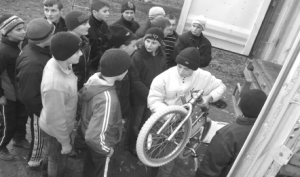
At the end of 2009, with the money we got from selling our original shipment, we had funds enough to pay for the transportation of a new container from Pedals for Progress. We have just begun to make the bicycles available to the public, but I have promised to award two prizes for the best pupils of the year 2009–10 — one pupil from the primary school and the second from the gymnasium (note: in Moldova, the primary school serves students ages 6–10, while the gymnasium serves students ages 10–15). And, of course, we are going to reward the most active volunteers in our various programs.
We are thankful to Pedals for Progress and the American people for providing us the chance to solve some of our everyday problems, like helping us move more quickly through the village and its neighborhood and helping us carry heavy loads more easily. Also, I can’t help mentioning the great help given by Peace Corps Volunteer Darren Enterline. He supported us greatly in implementing the Bikes for Everybody project and in opening the Sewing Workshop. Thank you all ever so much for your kindness and generosity. I wish you to be healthy and continue doing such generous charity for those who really need it so much nowadays.
Letter from Dolinta Mihaela, Moldova
Fall 2010 InGear
Dear Pedals for Progress,
The Milesian philosopher Thales said that one of the very difficult things for men was “to know oneself.” But I also think it’s one of the most rewarding. We discover new sides of our personalities trying new things and learning new skills. These experiences help us look forward to new goals. That’s why it’s so important to try every opportunity to know yourself. At Consult-Nord’s sewing center I’ve had the opportunity to improve my sewing skills—and I found the experience beautiful. I always wanted to be a designer and create my own clothes and I’ve been able to make my dream come true. I didn’t need to become an expert to create clothing, I only needed the desire and inspiration of knowing how splendid it is to wear clothes you’ve made by yourself. But I also think the sewing center is more than simply a place to pursue an interest. It’s helping to meet a real need we have nowadays. Not everyone has the chance to buy a sewing machine in order to make or repair garments, so in this case the center provides a practical solution.
These sewing classes helped me a lot in improving my skills and now I’m sewing my own garments. That’s amazing, isn’t it? I feel myself very lucky because I learned to sew and I am thankful to all those people who implemented this project. Thanks a lot for helping people to realize their dreams!
Dolinta Mihaela, 12th grade student
Letter from Pripa Elena, Moldova
Fall 2010 InGear
Dear Pedals for Progress,
I am a 15-year-old girl from Pelinia, Moldova, and trying to choose the way of my future. Frankly speaking, I was confused and didn’t know where to continue my studies. But now, after attending the “Art of Sewing” courses organized in our village by Consult-Nord, I know for sure that I will be a dressmaker. These courses were of great help to me, and my friends too. First, because we teenagers from the village are not so lucky as those from the cities, we don’t have the possibilities they do. Second, the courses were free.
We were satisfied here because we have learnt a lot of interesting things starting with the fabrics’ structure, taking measurements, and finishing with performing certain operations in sewing. We were given knowledge about the sewing process from start to finish. I sewed myself a nice dress and after I finished the courses my parents bought me the very machine I had worked on. I hope to make my parents happy sewing for them, too.
In conclusion, on behalf of the girls who attended the courses, I want to thank you for your kindness. I greatly appreciate you helping me reach my goals.
Pripa Elena, 9th grade student
Consult-Nord: P4P Partner in Moldova
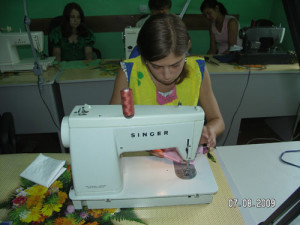 Consult-Nord, a local Moldovan NGO established to promote local economic development in Pelinia, saw the potential results that Pedals for Progress’s bicycles and sewing machines could provide and requested to become a partner. Consult-Nord started selling bicycles this winter after receiving a shipment in late December of 2008. The good quality, affordable bicycles are now available at a shop set up by Consult-Nord, offer numerous opportunities to villagers that otherwise would be inaccessible to them.
Consult-Nord, a local Moldovan NGO established to promote local economic development in Pelinia, saw the potential results that Pedals for Progress’s bicycles and sewing machines could provide and requested to become a partner. Consult-Nord started selling bicycles this winter after receiving a shipment in late December of 2008. The good quality, affordable bicycles are now available at a shop set up by Consult-Nord, offer numerous opportunities to villagers that otherwise would be inaccessible to them.
The photographs are from the sewing workshop at Consult-Nord from the first shipment.
Read more about Consult-Nord and Moldova in the Fall 2009 InGear.
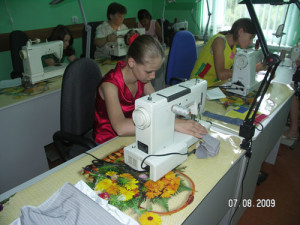 |
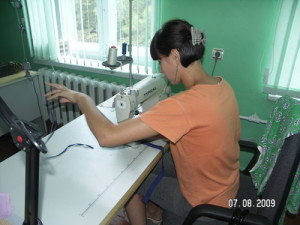 |
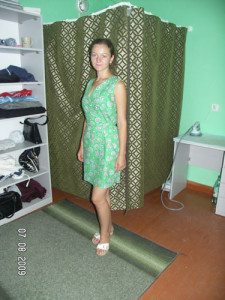 |
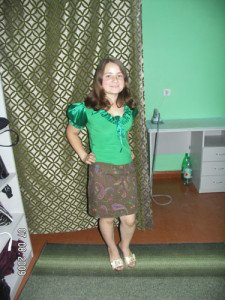 |
Where in the World is the Republic of Moldova?
by Reykha Bonilla
Fall 2007 InGear
Pedals for Progress V.P. Visits Moldovan Partner
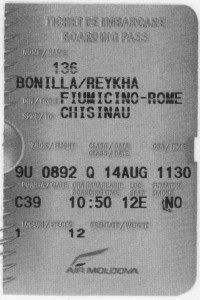 After many a raised eyebrow from friends, family, and even the travel agent who booked my ticket when I said I wanted to go to Moldova, I always found myself explaining why I was going there. And then I also ended up explaining where “there” was. Located in Eastern Europe surrounded by Romania and the Ukraine, Moldova is a small, landlocked country about the size of Maryland with a population of 4 million people. It was once a major agricultural producer for the Soviet Union. I headed there on August 13th, 2007, to meet our Moldovan colleagues and see their organization, Rural 21, firsthand.
After many a raised eyebrow from friends, family, and even the travel agent who booked my ticket when I said I wanted to go to Moldova, I always found myself explaining why I was going there. And then I also ended up explaining where “there” was. Located in Eastern Europe surrounded by Romania and the Ukraine, Moldova is a small, landlocked country about the size of Maryland with a population of 4 million people. It was once a major agricultural producer for the Soviet Union. I headed there on August 13th, 2007, to meet our Moldovan colleagues and see their organization, Rural 21, firsthand.
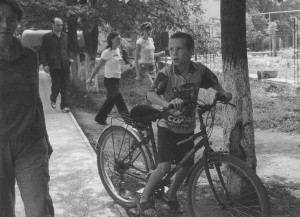
I began the 22-hour trip (11 hours in flight) first flying to Rome, Italy, before arriving the next afternoon in Chisinau (quiche-now) the capital city of Moldova. I was met at the airport there by Andrei Rusanovschi of Rural 21. After communicating only through email over the past two years, I was surprised to find that Andrei was a young man in his 20s, not the older gentleman I pictured for some reason. I was also surprised by his fluency in English as my Romanian is nonexistent.
Leaving the capital, we headed southwest for the town of Stefan Voda, where Rural 21 is located. During the two—hour drive, it was obvious, even with the severe drought this year has brought to Moldova, the worst Since the 1940s, that this country is ideal for farming. On either side of the road were vineyards and endless flat fields of sunflowers, corn, and wheat.
In the early evening, we arrived in Stefan Voda at the Rural 21 office in the center of town. Because director Vitale Rusanovschi, Andrei’s father, is well known—he once worked in the government—and as a result of the work they do, Rural 21 has a significant presence in the community. A small welcoming party greeted me, excited that a P4P representative made the trip to visit their country.
Founded 10 years ago to help where the local and national government wasn’t able to, Rural 21 new comprises an internet café, photography and copying services, and, of course, the bicycle shop. All of these businesses raise money for other community projects, such as a new water system providing 24-hour water service, a new heating system for the Maria Beshu School of Arts, and new sidewalks for the town square.
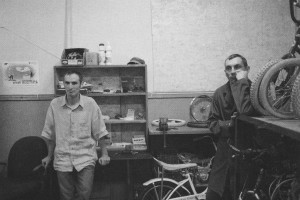
Since 2001, Rural 21 has received 1,800 bicycles from Pedals for Progress, and sold over 1,500 of them in Stefan Voda and surrounding towns. The heart of the Rural 21 bicycle shop is Slavic and his brother Valeriu, who work out of the basement at the Maria Beshu school building. These resident mechanics are there every step of the way. They unload each container, inventory and stock the warehouse, wash and repair each bicycle with care, and restore them to their original glory. With limited space and tools they have created an excellent workshop. They even fashioned homemade repair stands to make their work easier. Eventually, Valeriu and Slavic want to start a mechanic training program to train young people in bicycle repair, and to pass on their passion for cycling. They are also trying to organize a cycling club in Stefan Voda to generate interest in the sport of cycling.
Rural 21 has an advantage over the local bicycle market because the quality of the P4P bikes they receive is high, and they are able to sell them for a very low cost and still cover their expenses. Slavic and Valeriu find that people will often go to the market first and price the new bicycles, then come to the Rural 21 bike shop and purchase a used bike of better quality for less money. Again and again, we find this is a feature of P4P bikes that our partners really appreciate—when we collect bikes, we make sure they are sturdy, reliable, and have many more years of use left in them.
On other trips that I’ve taken to visit our programs, I always compare the public transportation to bicycles and try to determine what people save by owning a bike. I wasn’t able to do this in Moldova, at least not in Stefan Voda, as there is no local transportation infrastructure. There are buses that go to and from the capital, but there is no way to get from town to town. Thus, bicycles are a necessity. I was told this is largely the case throughout the country and worse in the smaller and more remote villages.
In the course of researching this during my visit I had the opportunity to speak with several bicycle owners who were very excited to share their stories with me.
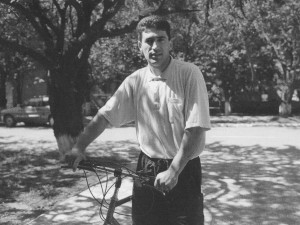
Victor purchased his bicycle in 2006, and works as a carpenter making doors and windows in Stefan Voda. Instead of the 30 minutes it used to take him to get to work, with his bicycle he’s there in four minutes, and gets more work done in a day, earning more leu, the Moldovan monetary unit.
Sergui, an employee at Rural 21, purchased his bicycle three years ago and has been very happy with it. In order to provide for his family, he also has two other jobs, which makes his bicycle essential. He even purchased a child seat so that he can take his son around easily as well.
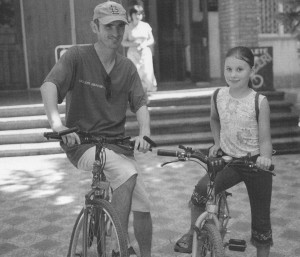
At 10-years old, Gabrielle is the youngest volunteer at Rural 21. A budding bike mechanic, she helps out Slavic and Valeriu. In return, she received her own bike and is learning bicycle repair. With her new mobility she can get to the shop in just a few minutes where it used to take her over 20 minutes walking.
Inga is a 17-year-old missionary who travels from town to town and uses her bicycle every day to get to the more remote villages she’d otherwise never visit, sometimes pedaling as many as 20 miles a day.
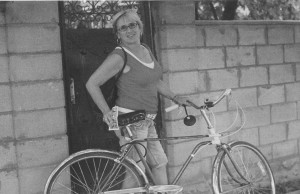
My generous host during my stay, Renell Pettinnelli, arrived at Stefan Voda in the winter of 2006 and waited all winter to purchase her bicycle. Slavic picked out a bike just for her and repaired it. Now Renell easily gets around town to teach English and work with a group that sets women up in business. And of course, she gets to the market regularly and far more easily.
During my visit I spoke with Andrei and Vitale about expanding Rural 21’s bicycle program to become a wholesaler in Moldova. They’ve been speaking with other community organizations in the northern part of the country that are in need of both bicycles and income-generating activities. Because Rural 21 is in the nearest city to the port of Odessa, they’re in a good position to provide this service, and to share their model of success elsewhere in Moldova.
Before my return, I met with the mayor of Stefan Voda, who is very optimistic about what his office and Rural 21 can accomplish during his four-year term. Unlike a lot of town governments, rather than view an organization like Rural 21 as competition or infringing on his domain, this mayor is very supportive of their work. What’s more, he encourages other mayors and politicians to incorporate bikes into their towns, and he even bought two bikes from Rural 21, one so his daughter can ride to school. The mayor and Vitale have worked closely together for many years and are hoping to work together on a larger scale over the next few years.
My visit to Rural 21 was eye opening and inspiring at once. The majority of my travels have been in Latin America, so Eastern Europe was a new experience for me. There is so much need in this small country that I hope we can expand our program in Stefan Voda, and in so doing, help Rural 21 expand theirs.
Moldova is a country filled with hardworking people who have the same needs and wants as every human being—a good job, food to eat, and a place to live. Happily, I saw firsthand that bicycles from Pedals for Progress are playing a big part in helping the community of Stefan Voda achieve these things. More bikes will simply improve more lives there. And helping Rural 21 to grow will serve to improve even more lives throughout the rest of Moldova.
Mobility in Moldova
2002 InGear
Following the disintegration of the USSR and the collapse of the Eastern Bloc economy, communities like Stefan Voda, in the former Soviet republic of Moldova, have seen incomes shrink, the cost of imported goods such as petroleum skyrocket, and their modest standards of living plummet. Personal mobility and productivity have suffered. As bus fares rose, the inhabitants of Stefan Voda could not afford to take public transport, the system collapsed, and a town once inter-connected via a bus system was left without transportation. Private cars are few. Moldovans are fond of bicycles, yet quality and price is a challenge for those on limited incomes. Nobody will sell a used bike, and new expensive imported bikes are the only ones available.
Local farmers on average walk 10–12 miles daily, to and from their fields. This takes two or more hours away from work. The average commute to work and school for teachers, students and others living outside the center of town is 30–45 minutes or more, exacerbated by the local tradition of returning home for lunch.
Peace Corps volunteer Marc Skelton, who works in a local non-governmental organization, Rural 21, coordinated with Stefan Voda. Marc teaches health to 6th and 7th graders, and facilitates HIV/AIDS seminars with local doctors and other medical professionals, to address the spread of this affliction resulting from the conversion of Moldova in general into a gateway for trafficking in women and drugs. Marc immediately saw that bicycles could contribute to better public health and the accomplishment of work and daily chores. Rural 21 agreed. The result is an initial request to P4P for 500 bicycles to establish a vocational educational program repairing and selling bicycles for local distribution.
P4P is presently seeking the $5,000 in funding necessary to finance an initial shipment and effectively capitalize a new project. If you would like to support Marc’s efforts, and those of Rural 21 and the people of Stefan Voda, send a check with the notation “Moldova” to Pedals for Progress, Box 312, High Bridge NJ 08829-0312.

